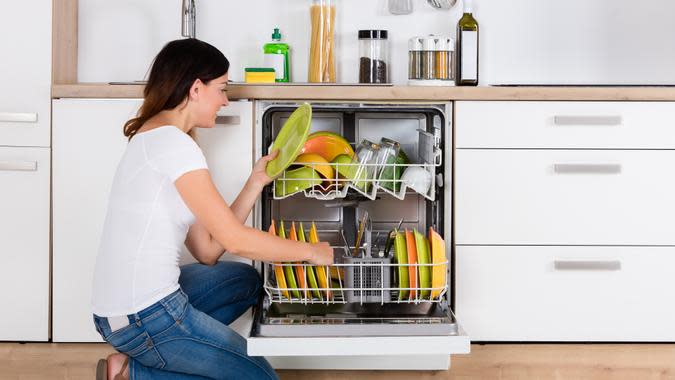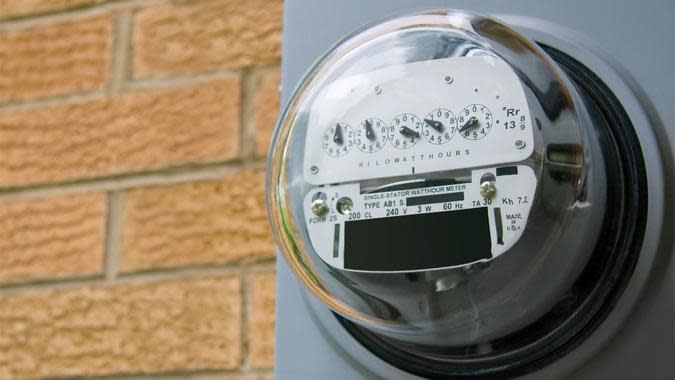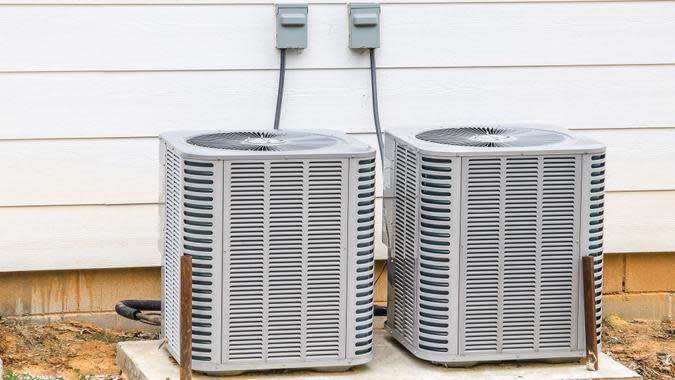8 Key Signs You’re Paying Too Much for Your Utility Bills

The rising cost of utilities has become a major financial concern for many Americans. According to a new survey by PowerSetter, nearly half of all Americans (43%) said they experience anxiety about their utility bills each month.
Find Out: 5 Unnecessary Bills You Should Stop Paying in 2024
Read Next: 7 Reasons a Financial Advisor Can Grow Your Wealth in 2024
While in many cases, high utility bills are an unavoidable reality, there are some scenarios in which you might be overpaying.
Here are a few signs that you may be paying too much for your utilities.

You Failed To Catch a Billing Error
According to the PowerSetter survey, 14% of Americans have a poor understanding of their utility bills. This means they could miss billing errors and be overcharged.
“Billing errors are more common than you might think,” said Mark Feygin, founder and CEO of PowerSetter. “One in four Americans have spotted a mistake — and that’s only those who noticed.”
To avoid being overcharged, always double-check that your bill is accurate.
“Take a meter reading at the end of the month and compare it against your bill, checking that both the unit rate, standing charge and amount due match your contract,” Feygin said.
Explore More: 5 ‘Necessities’ Frugal People Don’t Buy, According to Frugal Living Expert Austin Williams
Check Out: 9 Things the Middle-Class Should Consider Downsizing To Save on Monthly Expenses
Earning passive income doesn't need to be difficult. You can start this week.

You’re Not Paying Attention to Pricing Tiers
“Many providers use tiered rate structures, meaning the more you use, the more you pay per unit,” Feygin said. “There’s no warning. Unless you check your consumption throughout the month, you won’t know you’ve crossed into a higher tier until the bill arrives.”
Trending Now: How Much Money Do Americans Have in Their Bank Accounts in 2024?

You Haven’t Had a Recent Meter Reading
If you’re due for a meter reading, don’t put it off.
“Utility providers will estimate your usage if they don’t have a recent meter reading to rely on, but don’t expect accuracy — expect an overcharge instead,” Feygin said. “To avoid it, don’t put off submitting a reading when requested.”

Your Appliances Are Outdated or Faulty
“Your utility provider isn’t necessarily to blame for a sudden spike,” Feygin said. “The issue could be a little closer to home — a leaky faucet, damaged insulation or an HVAC system that has seen better days. Inefficient or ineffective systems require more energy — and more expense — to run.”
Make sure your appliances are energy-efficient and running smoothly to avoid higher than necessary utility bills.

You’re Being Charged Unnecessary Fees
Here’s one more reason you need to pay close attention to your utility bills.
“Utility companies add all sorts of extras — administrative fees, seasonal rate adjustments, payment processing fees — so keep a close eye on your itemized bill,” Feygin said. “If they don’t mention a charge in your contract, get on the phone and dispute it.”
Consider This: 7 Essential Home Updates To Make Now Before Prices Rise in 2025

You’re Not Comparing Providers
If you live in an area where you can choose your utility providers, make sure to shop around for the best deal.
“Don’t assume you have the best deal,” Feygin said. “Energy costs and terms vary from provider to provider, so shop around. Check all available rates in your region and pick the cheapest. Don’t worry about quality — it all comes from the same supply.”

You Didn’t Renew Your Contract
“If you fail to renew your contract, your supplier will likely move you onto their default plan, which typically comes with a higher cost,” Feygin said. “Make a mental note of when your fixed contract comes to an end, and don’t leave it too late to lock in a new deal.”

You’re Missing Out on Discounts
“Many people are entitled to discounts, yet simply don’t realize it,” Feygin said. “Are you self-employed and working from home? You can claim a portion of your electricity, heating and water costs back in tax deductions, for instance.
“Likewise, it’s worth considering schemes such as solar installation tax rebates, which can lower your costs in the long term.”
More From GOBankingRates
6 Subtly Genius Moves All Wealthy People Make With Their Money
10 Housing Markets That Will Plummet in Value Before the End of 2024
5 Low-Risk Accounts Financially Savvy People Trust for Reliable Returns (And How You Can Use Them)
I'm a Debt Expert: Here's How Social Media Warps Our Perceptions of Debt
This article originally appeared on GOBankingRates.com: 8 Key Signs You’re Paying Too Much for Your Utility Bills